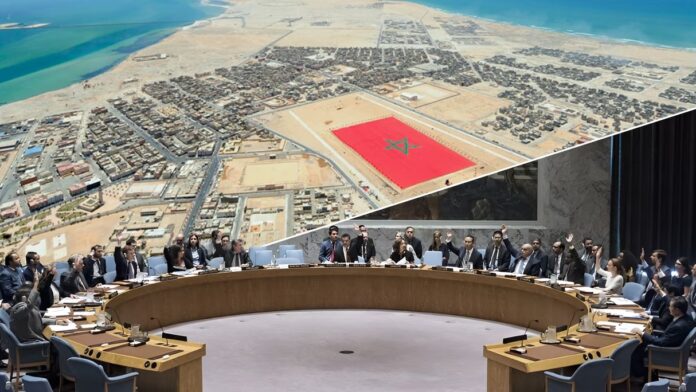The diplomatic landscape surrounding the Moroccan Sahara is undergoing a decisive shift. A series of recent developments—each distinct but collectively aligned—signal growing international support for Rabat’s position. From Moscow’s recalibrated stance to renewed U.S. engagement, and from increased global recognition to the contents of a draft UN resolution currently circulating, the message is becoming increasingly clear: Morocco’s autonomy proposal, first introduced in 2007 under the leadership of King Mohammed VI, is now widely seen as the only credible and pragmatic framework for resolving the long-standing dispute.
This international pivot is not the result of short-term circumstances, but rather the outcome of a patient, consistent, and methodical diplomatic strategy. Morocco’s approach—deliberately avoiding rhetorical escalation—has been rooted in historical legitimacy, legal clarity, and an ability to adapt to shifting global dynamics.
A particularly notable shift came from Russia. In a recent statement, Russian Foreign Minister Sergei Lavrov expressed openness to supporting the autonomy plan, provided there is consensus among the parties. While Moscow has traditionally maintained a delicate balance with Algeria, this comment marks a subtle yet meaningful evolution. It implies a growing recognition of the strength and viability of Morocco’s offer, and it aligns with Russia’s broader push to deepen ties with credible African partners as part of its post-sanctions diversification strategy.
In this evolving context, Morocco stands out as a stable, reliable partner—one that brings a cohesive regional vision and a proven ability to navigate complex geopolitics. The country’s diplomacy continues to champion international law, anchored in the principles of territorial integrity, national sovereignty, and decentralized governance—all of which are reflected in the autonomy plan.
The United States, meanwhile, is doubling down on its support. Special envoy Steve Witkoff recently announced a proposed agreement aimed at easing tensions between Morocco and Algeria. This initiative builds on the U.S. decision in December 2020 to formally recognize Moroccan sovereignty over the Sahara. Since then, Washington has consistently reinforced its backing through political, security, and economic channels.
The U.S. role is not one of neutral mediation but rather of strategic alignment. Its continued advocacy for the autonomy plan reflects a broader view that resolving the issue is key to ensuring North African stability, which is essential to transatlantic interests. In this architecture, Morocco is seen as a dependable ally with strong regional leadership and a stable institutional model.
A leaked draft UN Security Council resolution appears to cement this shift. The document reportedly frames future negotiations exclusively within the context of Morocco’s autonomy plan and proposes a three-month extension of the UN’s MINURSO mission. The compressed timeline suggests a clear intent to break the cycle of indecision and move toward a resolution. It also acknowledges that the previous status quo—marked by prolonged uncertainty—is no longer tenable.
This change reflects a broader dual recognition: first, that Morocco’s proposal aligns with the imperative for regional stability, and second, that the plan has moved from being one option among many to the default framework for progress. It is no longer a suggestion—it has become the blueprint around which international expectations are coalescing.
Importantly, this shift has not occurred in isolation. It’s the result of a long-standing strategy driven by a royal vision rooted in legitimacy, consistency, and continental engagement. The opening of over 30 consulates in Laâyoune and Dakhla is more than symbolic. These diplomatic missions are tangible expressions of international recognition, backed by growing economic, cultural, and security partnerships.
Simultaneously, Morocco has built strong alliances within major international institutions. Three of the five permanent members of the UN Security Council—the United States, France, and the United Kingdom—explicitly support the autonomy initiative. Other influential countries, including Germany, Spain, and the United Arab Emirates, have also endorsed it. This widespread backing signals a broader diplomatic realignment that extends well beyond the region.
What we’re witnessing is not a random convergence of events, but the validation of a long-term doctrine centered on national sovereignty, advanced regionalization, and inclusive development. The Moroccan Sahara is no longer seen as a conflict zone but as a region of opportunity—one that could serve as a cornerstone for a stable, interconnected, and forward-looking Africa.
